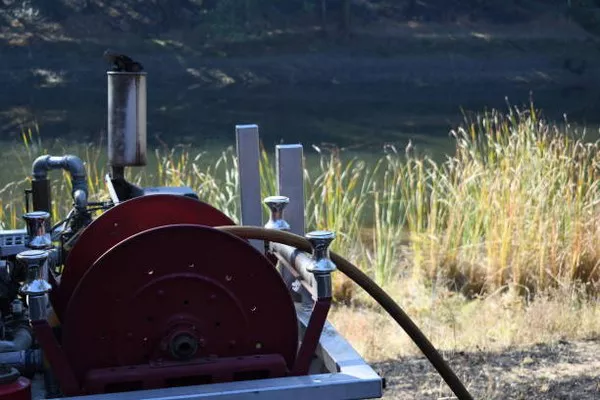In today’s rapidly evolving world, power outages can disrupt daily life, jeopardizing comfort, safety, and productivity. Whole house generators have become indispensable for homeowners seeking a reliable backup power source. But what if you’re dealing with space constraints, or simply want a more compact solution? This article delves into the world of compact whole house generators, discussing their significance, options available, and factors to consider when choosing the smallest whole house generator.
Why Compact Generators Matter
Whole house generators are designed to restore power to an entire residence during blackouts. These generators automatically switch on when the main power supply fails, ensuring uninterrupted operation of essential appliances, lighting, and climate control systems. Traditionally, whole house generators have been relatively large and powerful units, often occupying a considerable amount of outdoor space.
However, not all homeowners have the luxury of ample outdoor space, or they might prefer a more discreet solution. In such cases, compact whole house generators come to the rescue. These compact generators are smaller, more space-efficient, and can be easily installed in tighter areas while providing the same reliability and power capacity as their larger counterparts.
Options for the Smallest Whole House Generators
Compact whole house generators have gained popularity for their ability to fit seamlessly into various settings without compromising on performance. Here are a few options available in the market:
Air-Cooled Generators: Air-cooled generators are popular among homeowners seeking compact and affordable whole house generators. These generators rely on an internal fan to regulate the engine temperature, eliminating the need for a liquid cooling system. This design results in a smaller and lighter unit, making it an ideal choice for those with limited installation space.
Inverter Generators: Inverter generators are known for their compact design and fuel efficiency. While they may not provide the same power output as traditional whole house generators, they are perfect for homeowners with moderate backup power needs. Inverter generators are often quieter and more environmentally friendly, making them suitable for residential areas where noise and emissions are a concern.
Compact Standby Generators: Some manufacturers have recognized the need for compact standby generators and have developed models specifically designed for smaller spaces. These generators offer a reliable source of power while minimizing the space required for installation.
Generators with Sound-Reducing Features: Noise pollution can be a concern for homeowners, particularly in urban environments. Compact whole house generators with advanced sound-reducing features ensure that power generation remains unobtrusive. These generators come with noise-cancelling technology and soundproof enclosures, making them an ideal choice for noise-sensitive areas.
Key Factors to Consider
When choosing the smallest whole house generator for your needs, several important factors should be considered:
Power Requirements: The size of the generator should be based on your specific power requirements. Make a list of the essential appliances and systems you want to power during an outage. Your generator’s capacity should be sufficient to support these items without overloading the system.
Available Space: Determine the space available for generator installation. Compact generators are designed to fit into tighter spaces, but it’s crucial to ensure that your chosen unit will fit comfortably in the designated area.
Fuel Type: Whole house generators typically run on natural gas, propane, or diesel fuel. Choose a fuel source that aligns with your preferences and availability in your area.
Noise Level: Consider the noise level generated by the generator. If noise is a concern, opt for a unit with sound-reducing features to maintain peace and quiet during operation.
Transfer Switch: Whole house generators require a transfer switch to automatically shift power from the main grid to the generator when needed. Ensure that the transfer switch is compatible with the compact generator you select.
Maintenance: All generators require regular maintenance to ensure they remain operational during emergencies. Make sure you are comfortable with the maintenance requirements of the chosen generator.
Brand and Warranty: Choose a reputable brand known for producing reliable generators. Check the warranty and after-sales support options to have peace of mind in case of any issues.
Benefits of Compact Whole House Generators
Compact whole house generators offer a range of benefits for homeowners, making them a popular choice:
Space Efficiency: The primary advantage of compact generators is their ability to fit into small spaces, such as tight backyards or restricted utility areas. This allows homeowners to maintain their outdoor aesthetics while ensuring reliable backup power.
Cost-Efficiency: Compact generators are often more affordable than larger units. Their smaller size means less material and labor are required for installation, leading to cost savings for homeowners.
Reduced Noise: Many compact generators come equipped with advanced noise-reducing technology, making them an excellent choice for residential areas where noise pollution is a concern.
Environmentally Friendly: Inverter generators, in particular, are known for their fuel efficiency and lower emissions. This makes them a greener choice for those who are environmentally conscious.
Easy Installation: The compact size and design of these generators simplify the installation process, reducing the time and labor required for setup.
Conclusion
The smallest whole house generators have carved a niche in the market, offering space-efficient, reliable, and cost-effective solutions for homeowners seeking uninterrupted power during outages. Whether you have a limited outdoor area, prioritize noise reduction, or are looking for an environmentally friendly option, there is a compact generator that can meet your specific needs. It’s crucial to carefully assess your power requirements, available space, and other essential factors before making a choice. In the end, the right compact whole house generator can provide peace of mind and ensure that your home remains powered during unexpected blackouts.

